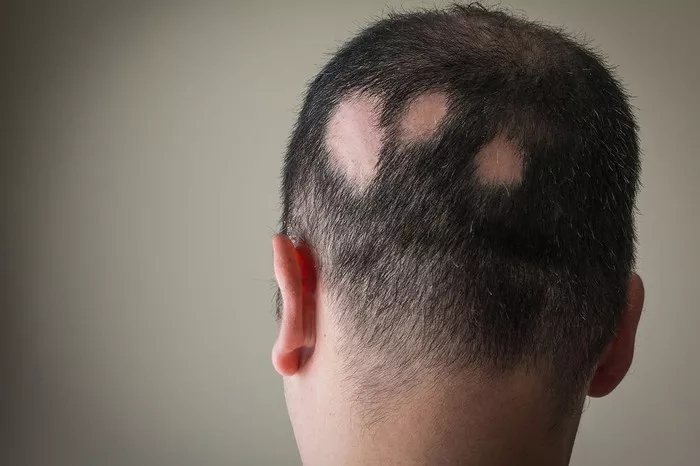Hair loss is a common concern for many men, impacting self-esteem and confidence. Understanding the main causes of hair loss in men is crucial for effectively managing and addressing this issue. In this article, we will explore the primary cause of hair loss in men, known as male pattern baldness, and delve into other factors that can contribute to hair loss. By gaining insights into the main causes of hair loss, men can take proactive steps to maintain their hair health and explore appropriate treatment options.
Understanding Male Pattern Baldness
Male pattern baldness, also known as androgenetic alopecia, is the most common cause of hair loss in men. It is a hereditary condition characterized by a gradual thinning of hair, typically starting at the temples and crown of the head. Male pattern baldness is primarily influenced by genetics and hormonal factors, particularly the hormone dihydrotestosterone (DHT).
DHT is a derivative of testosterone and is produced in the body by the enzyme 5-alpha reductase. In individuals with a genetic predisposition to male pattern baldness, DHT can bind to receptors in the hair follicles, leading to shrinkage of the follicles and shortening of the hair growth cycle. Over time, this process results in the production of finer, shorter hairs and eventual hair loss.
Other Factors Contributing to Hair Loss in Men
While male pattern baldness is the primary cause of hair loss in men, several other factors can contribute to hair thinning and shedding:
Age: Hair loss tends to become more prevalent with age, with the majority of men experiencing some degree of hair thinning by the age of 50. Aging leads to changes in hormone levels and decreased blood flow to the scalp, which can contribute to hair loss.
Stress: Chronic stress can disrupt the hair growth cycle and lead to increased shedding of hair. Telogen effluvium is a condition characterized by sudden, temporary hair shedding due to stress, illness, or hormonal changes.
Medical Conditions: Certain medical conditions such as thyroid disorders, autoimmune diseases (e.g., alopecia areata), and scalp infections can cause hair loss in men. Treating the underlying medical condition is essential for addressing hair loss in these cases.
Medications: Some medications, including chemotherapy drugs, blood thinners, and antidepressants, can cause hair loss as a side effect. Hair loss typically resolves once the medication is discontinued, but it’s essential to consult with a healthcare professional if experiencing medication-induced hair loss.
Poor Nutrition: A diet lacking in essential nutrients such as vitamins, minerals, and protein can contribute to hair loss and thinning. Nutrient deficiencies can affect the health of hair follicles and disrupt the hair growth cycle.
Prevention and Treatment of Hair Loss in Men
While male pattern baldness and other causes of hair loss cannot always be prevented, several strategies can help minimize hair loss and promote hair growth in men:
Maintain a Healthy Lifestyle: Eating a balanced diet rich in vitamins, minerals, and protein, staying hydrated, exercising regularly, and managing stress levels can promote overall health and hair growth.
Use Gentle Hair Care Products: Avoid harsh chemical treatments, excessive heat styling, and tight hairstyles that can damage the hair and contribute to hair loss. Use gentle shampoos and conditioners formulated for your hair type.
Medications: FDA-approved medications such as minoxidil (Rogaine) and finasteride (Propecia) can help slow down hair loss and promote hair regrowth in some men. These medications work by blocking the conversion of testosterone to DHT and stimulating hair follicles.
Hair Transplant Surgery: For men with advanced hair loss, hair transplant surgery can be an effective option for restoring lost hair and achieving a fuller head of hair. During the procedure, hair follicles are harvested from donor areas and transplanted into balding or thinning areas of the scalp.
Scalp Micropigmentation (SMP): SMP is a non-invasive cosmetic procedure that involves tattooing the scalp to create the appearance of a fuller head of hair. It can be a suitable option for men who are not candidates for hair transplant surgery or prefer a non-surgical approach.
Conclusion
Male pattern baldness, influenced by genetics and hormonal factors, is the primary cause of hair loss in men. However, other factors such as age, stress, medical conditions, medications, and poor nutrition can also contribute to hair thinning and shedding. By understanding the main causes of hair loss and exploring appropriate prevention and treatment options, men can effectively manage their hair health and maintain confidence in their appearance. Consulting with a healthcare professional or hair restoration specialist is essential for developing a personalized treatment plan based on individual needs and preferences.
Does Excess Caffeine Cause Hair Loss

